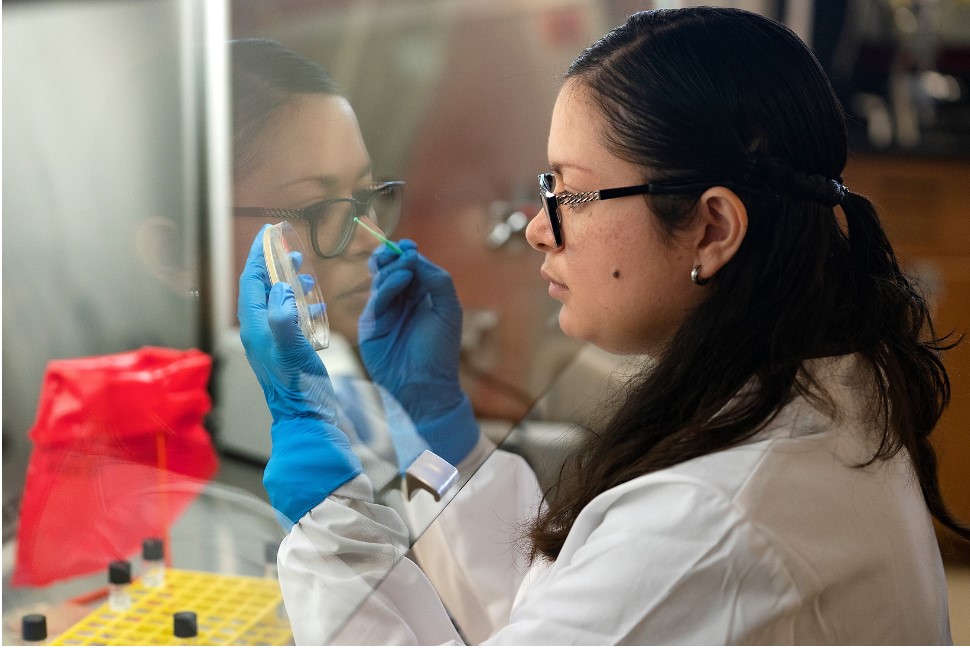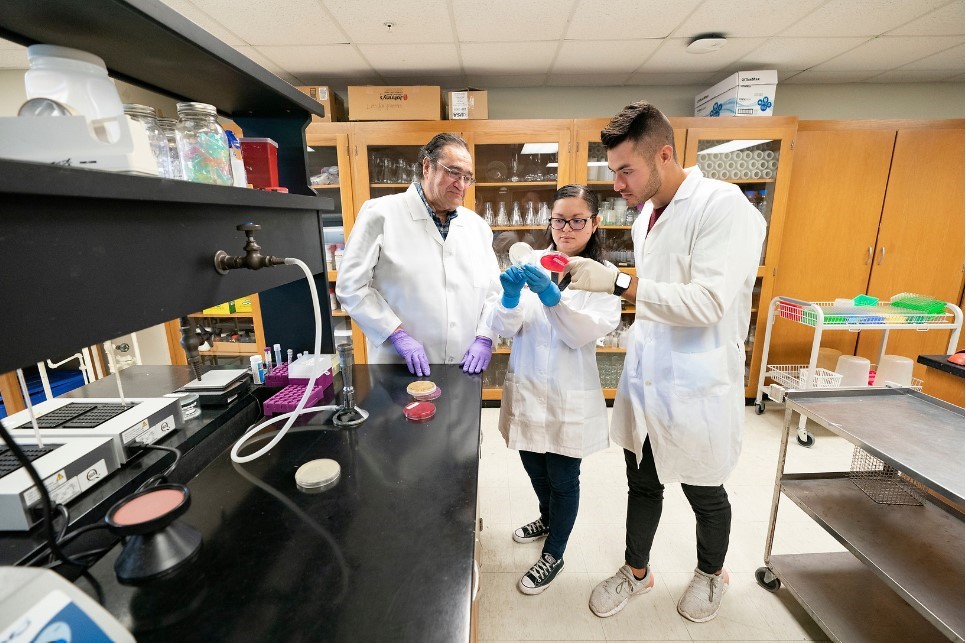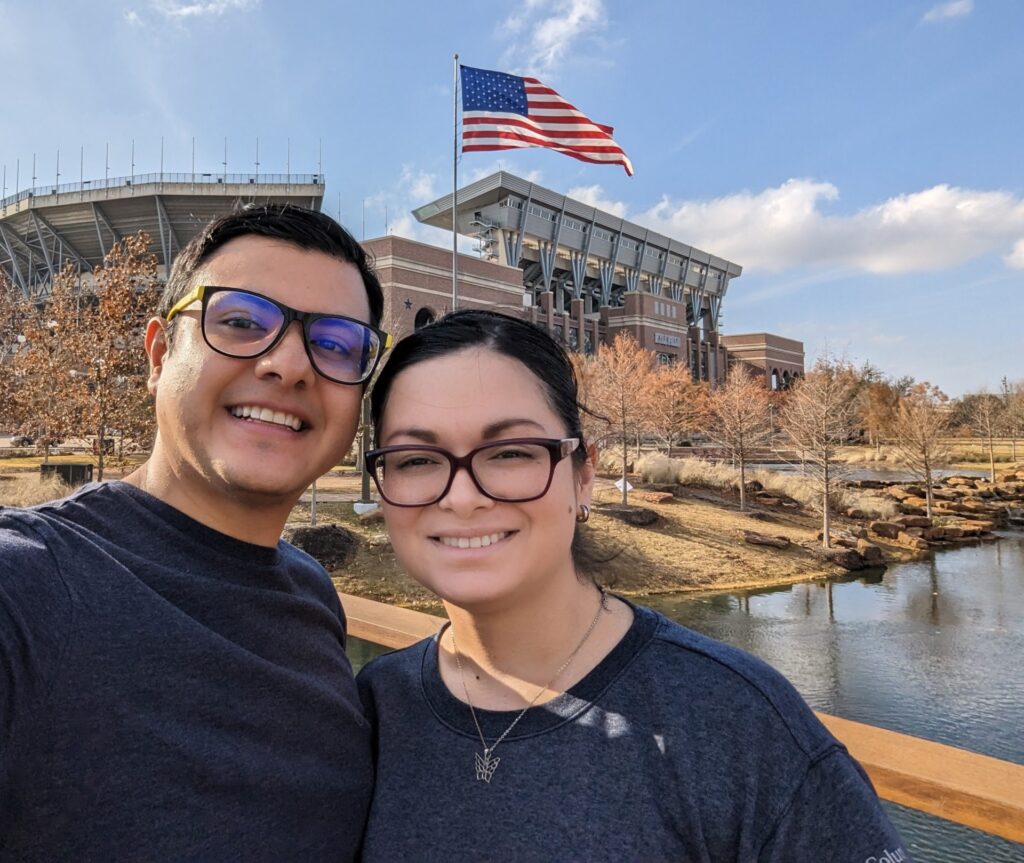Passion for food science leads student from Costa Rica to College Station
Doctoral candidate Karla Solis Salazar is studying microbiology to improve food safety
Growing up in the small town of Coronado in the San Jose province of Costa Rica, Karla Solis Salazar wasn’t thinking about a career in food science.

Although her hometown is renowned for its dairy industry and that may be the foundation for her love of “anything with cheese,” it wasn’t what led to her studying food science. And it also didn’t change her dislike of drinking milk.
Additionally, Solis Salazar’s father was actively involved in an agricultural center that assisted farmers in their region, but her interest in food science wasn’t sparked by that either.
Her interest blossomed while working on her undergraduate degree in clinical microbiology at the University of Costa Rica. It was then Solis Salazar realized she had a passion for food science and food safety.
Eventually, she came to Texas to further explore her interest and is currently a doctoral candidate in the Department of Food Science and Technology in the Texas A&M College of Agriculture and Life Sciences.
“I saw the complex relationships between microorganisms and the food we consume,” Solis Salazar said. “It was then that I realized we can prevent numerous foodborne illnesses by following good hygiene and manufacturing practices.”
Her research on microorganisms, which can reduce or stop the growth of foodborne pathogens on leafy greens, may lead to ways to diminish the risk of foodborne illness and improve food safety.
Solis Salazar’s drive to discover, learn and understand as much about her field of study as possible is a trait that she sees as a passion she will never get tired of.
“Research never ends,” she said. “As soon as you answer one question many others appear. I will never finish learning.”
Solis Salazar recently joined us for a discussion on how her journey in the Department of Food Science and Technology is helping her find a career based on her passion.
Why did you choose Texas A&M and the Department of Food Science and Technology?

I chose Texas A&M University due to its curriculum and research in food science. Here, I have had the opportunity to work under the guidance of Gary Acuff, Ph.D., and Alejandro Castillo, Ph.D., who are great researchers in food microbiology and food safety.
One of the things that makes the Department of Food Safety and Technology special is that although it is a relatively small department, it is extremely diverse. This makes it possible to know all the graduate students, their research and their culture, which provides an environment that enables not only professional development, but also personal growth.
What does your research specifically focus on?
My research focuses on the use of microorganisms isolated from spinach, and how these affect the growth of foodborne pathogens. We identified spinach-native microorganisms that can affect the colonization of leafy greens by foodborne pathogens.
The goal is to enhance food safety in the leafy green industry, specifically spinach, by finding those microorganisms that have the potential to be used as bio-control agents, reducing the proliferation of common outbreak food-borne pathogens.
What impact could your research have on the food industry and food safety?
We have found microorganisms with the ability to reduce or stop the growth of food-borne pathogens that are commonly related to foodborne illness outbreaks. If, in the future, we can elucidate the mechanism of this activity or a secure form of use for them at the farming level or post-harvest processing, it will enhance the food safety of leafy greens.
What activities outside of the classroom are you involved in that have shaped your academic career?
I had the opportunity to participate in different food safety certification programs and to become a trainer in some of them. I have been involved in teaching at different Department of Food Science and Technology classes, and thanks to Dr. Castillo, I traveled to Mexico as a guest speaker in the Microbiological Challenge Testing of Foods-Design and Execution seminar at the University of Guadalajara. I am interested in pursuing a career in academia, and I feel these activities gave me the opportunity to improve my teaching.
What was your favorite class?
My favorite class was Meat Processing and Technology. I took it during my first semester at Texas A&M, and Rhonda Miller, Ph.D., in the Department of Animal Science created a great learning environment. She shows great passion for teaching and the topics were new to me and it made it very interesting.
What is one of your favorite memories of your time at Texas A&M?
I have had so many great memories. I started my family in College Station. I got engaged and married during the last semester of my master’s degree.
I have met incredible people, whose friendship I will cherish for life. I also had the opportunity to bring my mom to the U.S. for my graduation, which was her first time traveling outside of Costa Rica.
Do you have any key mentors or people who deeply influenced who you are, what you believe in, and what you are committed to in your work and life?
At Texas A&M, Alejandro Castillo, Ph.D., Gary Acuff, Ph.D., Sapna Dass, Ph.D., and Lisa Lucia showed me the importance of loving what you do and that you should never stop learning. And Dr. Castillo’s training work in Latin America and other regions of the world has been a huge inspiration to me, as it showed me another possibility of how I can share what I have learned with others.
My mentors as an undergraduate student in Costa Rica were Dr. Maria Laura Arias Echandi, Laura Villabos Soto and Lisela Moreira. They helped me develop my laboratory skills and challenged me intellectually. They helped me grow into a professional who aims to help the society we live in, and especially the most vulnerable populations.
What advice would you give others interested in a similar educational path?
I would advise them to get involved in research during their undergraduate years. This allows for opportunities to gain experience with things you will not learn in class, and to gain practical experience in the lab.
I would also suggest looking for free training and certificates. Many companies offer training to students for free, and that helps strengthen your resume while still in school.
What are your plans for post-graduation?
I would like to work in academia in Costa Rica. My top choice would be the Department of Food Microbiology at the University of Costa Rica. I aim to dedicate a portion of my time to Extension activities, such as promoting good agricultural practices with small-scale producers.



